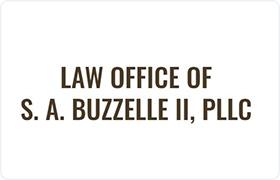Mesa Workout Lawyer, Arizona
Sponsored Law Firm
-
 x
x

Click For More Info:
-
Law Office of S.A. Buzzelle II, PLLC
14050 N 83rd Avenue Suite 290 Peoria, AZ 85381» view mapBankruptcy & Debt Law Your Trusted Bankruptcy Attorney
If you are in need of legal services for matters relating to bankruptcy and divorce, rely on Law Office of S. A. Buzzelle II, PLLC in Peoria, AZ.
800-873-4991
Derek Judd
Foreclosure, Reorganization, Litigation, Workout
Status: In Good Standing *Status is reviewed annually. For latest information visit here
Daniel Salem Fuller
Business & Trade, Commercial Real Estate, Workout
Status: In Good Standing *Status is reviewed annually. For latest information visit here Licensed: 17 Years
 Stanley A. Buzzelle II Peoria, AZ
Stanley A. Buzzelle II Peoria, AZ Practice AreasExpertise
Practice AreasExpertise